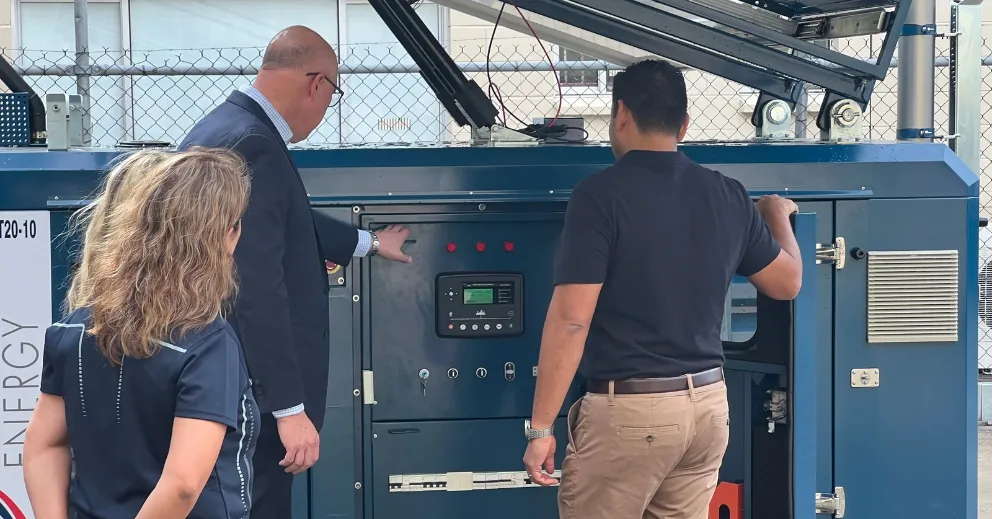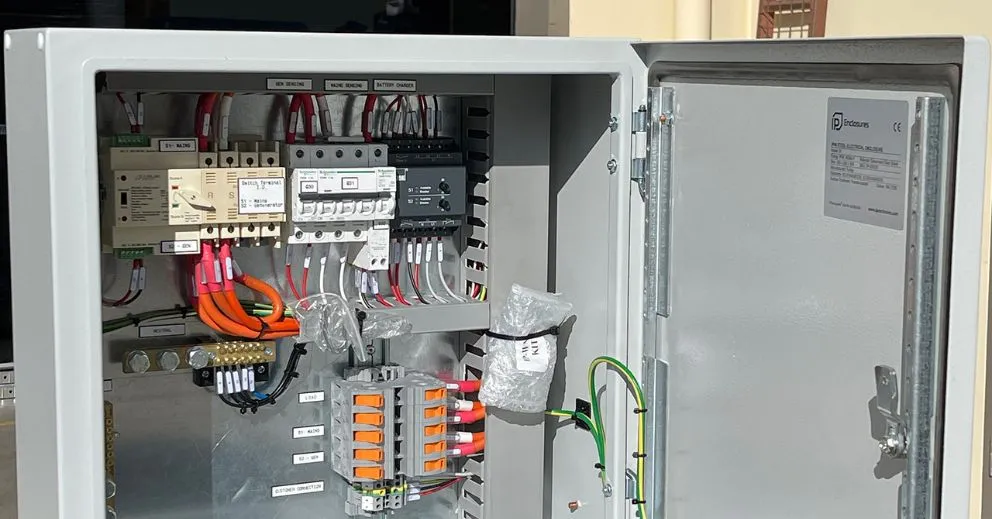As the world shifts towards cleaner energy solutions, businesses and homeowners are looking for ways to reduce their carbon footprint while maintaining reliable power. Gas generators have emerged as a practical option, offering lower emissions compared to traditional diesel or petrol-powered generators. But how exactly do gas generators help reduce carbon emissions, and why are they a better alternative for the environment?
In this guide, we’ll break down the environmental benefits of gas generators and how they contribute to a more sustainable energy future.
The Impact of Carbon Emissions
Carbon emissions are one of the biggest contributors to climate change. Burning fossil fuels like coal, petrol, and diesel releases carbon dioxide (CO₂) and other greenhouse gases into the atmosphere, trapping heat and leading to global warming. Reducing these emissions is crucial for slowing down climate change and improving air quality.
Traditional generators, particularly diesel models, produce significant CO₂ emissions, along with nitrogen oxides (NOx) and particulate matter. Gas generators, however, offer a cleaner alternative by producing lower emissions while still providing reliable power.
How Gas Generators Lower Carbon Emissions
Cleaner Burning Fuel
Gas generators run on natural gas, liquefied petroleum gas (LPG), or biogas, all of which burn cleaner than diesel or petrol. Natural gas, in particular, emits up to 30% less carbon dioxide than diesel and 45% less than coal when burned for power generation.
By choosing a gas generator, you’re using a fuel source that releases fewer harmful pollutants into the air, making it a more environmentally friendly option.
Reduced Particulate Matter and NOx Emissions
Diesel generators are known for releasing high levels of particulate matter and nitrogen oxides, which contribute to air pollution and respiratory problems. Gas generators, on the other hand, produce significantly lower levels of these pollutants, improving air quality and reducing health risks.
This makes gas generators particularly beneficial for urban areas or enclosed environments where air quality is a concern.
Greater Fuel Efficiency
Gas generators are designed to operate more efficiently than many traditional fuel-powered generators. They burn fuel more completely, converting more of it into usable energy and reducing waste. This efficiency means that less fuel is needed to generate the same amount of power, leading to lower overall carbon emissions.
For example, if a business switches from a diesel generator to a gas generator, it can achieve the same power output while consuming less fuel and emitting fewer greenhouse gases.
Compatibility with Renewable Energy Sources
One of the biggest advantages of gas generators is their ability to work alongside renewable energy sources like solar or wind power. When solar panels or wind turbines aren’t generating enough electricity due to cloudy days or low wind speeds, gas generators can step in to provide backup power without relying on high-emission fuels.
This hybrid approach ensures a reliable power supply while keeping carbon emissions as low as possible.
Lower Methane Leakage Compared to Other Fossil Fuels
While natural gas does contain methane, a potent greenhouse gas, advancements in technology have significantly reduced methane leakage during extraction and transport. Modern gas generators are designed to burn fuel more completely, minimising waste and reducing the overall environmental impact.
Why Gas Generators Are a Smarter Choice for Businesses and Homes
Switching to gas generators offers more than just environmental benefits. Here’s why they make sense for businesses and homeowners alike:
- Cost-Effective Fuel: Natural gas and LPG are often more affordable and stable in price compared to diesel or petrol.
- Reliable Power Supply: Gas generators provide consistent power, making them ideal for businesses, hospitals, and households needing backup power.
- Longer Lifespan: Gas generators tend to have a longer operational life and require less maintenance than diesel models.
- Reduced Noise Pollution: Many gas generators operate more quietly than their diesel counterparts, making them better suited for residential areas and office environments.
How to Make the Most of a Gas Generator
To maximise the environmental and cost-saving benefits of a gas generator, consider these best practices:
- Choose the Right Size Generator: An oversized generator wastes fuel, while an undersized one may not meet your power needs.
- Maintain Regular Servicing: Keeping your generator well-maintained ensures it operates efficiently and with lower emissions.
- Consider Hybrid Systems: Pairing a gas generator with renewable energy sources further reduces carbon emissions.
- Use High-Quality Fuel: Clean-burning natural gas or LPG improves efficiency and lowers pollutant output.
Switch to a Cleaner Power Solution with Jubilee Energy
Reducing your carbon footprint doesn’t mean sacrificing reliable power. Gas generators provide a cleaner, cost-effective way to keep your home or business powered while lowering emissions.
Looking to make the switch? Jubilee Energy offers high-quality gas generators, expert advice, and professional installation to help you find the perfect power solution.
Contact Jubilee Energy today to explore your options and take a step towards cleaner, more efficient energy.
More insights from us
Discover the latest in power generation technology.





